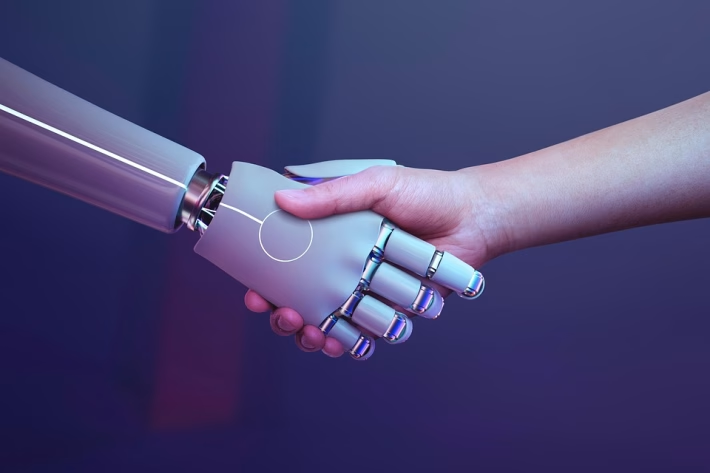Navigating the Future: How AI is Reshaping Financial Services in 2025

As we step into 2025, the landscape of artificial intelligence (AI) and automation has evolved dramatically. Leading tech giants like OpenAI, Google, and Microsoft are unleashing a wave of groundbreaking adaptive AI tools that promise to enhance productivity, streamline operations, and shift the paradigm of work as we know it. This article explores the latest advancements in AI, their practical applications, inherent challenges, and the broader implications for industries worldwide.
The Core Development: A New Era of Adaptive AI
This year, the focus is on adaptive AI—AI systems designed not only to execute predefined tasks but also to learn and adapt to changing environments in real-time. A standout tool is OpenAI’s latest iteration of ChatGPT, now equipped with the ability to customize its behavior based on user interactions, historical data, and context.
The architecture employs advanced transformer models combined with reinforcement learning techniques. This is enabling AI to tackle complex, multi-faceted problems that were previously out of reach. According to a report from Gartner, organizations are expected to adopt adaptive AI strategies at an accelerating rate, with projections suggesting that up to 60% of businesses will incorporate adaptive AI technologies by 2026.
Practical Applications: Leveraging Adaptive AI for Business Improvement
Businesses and developers can utilize this next-gen AI in several practical applications:
-
Customer Service: Adaptive AI can enhance chatbots and virtual assistants, allowing them to provide personal responses based on previous interactions, thereby improving customer satisfaction.
-
Supply Chain Optimization: Companies like Amazon and FedEx are integrating adaptive AI into their logistics, predicting disruptions and adjusting routes in real-time, which can lead to significant cost savings.
-
Personalized Marketing: Brands are employing adaptive AI to deliver customized content, predicting what products a customer is likely to purchase based on their past behaviors and preferences.
- Healthcare: Adaptive systems can analyze patient data to recommend tailored treatment plans, improving health outcomes while reducing operational inefficiencies.
Benefits & Challenges: Navigating the Pros and Cons
Advantages
-
Increased Efficiency: Adaptive AI systems simplify complex processes and handle vast data sets more quickly and accurately than traditional systems.
- Improved Decision-Making: With real-time adaptable capabilities, businesses can make informed decisions faster, reacting to market changes and consumer demands promptly.
Limitations and Controversies
-
Ethical Concerns: As AI grows more capable, questions arise regarding data privacy and the ethical use of AI-generated insights.
-
Regulation: Governments are grappling with how to legislate AI use responsibly without stifling innovation. Issues like algorithmic bias and accountability pose significant challenges.
- Job Displacement: While adaptive AI enhances efficiency, it also raises fears of job losses in sectors where automation takes precedence.
Industry/Market Impact: The Future of AI Adoption
The rise of adaptive AI dovetails with broader automation trends, particularly in industries like finance, online retail, and manufacturing. A report from McKinsey indicates that organizations that adapt AI systems will outperform their competitors who stick to traditional automation tools. Furthermore, sectors such as healthcare and education are seeing substantial investment in adaptive technologies to enhance service delivery and efficiency.
Expert Insights: Perspectives from Thought Leaders
Dr. Emily Chang, AI lead at Google Research, notes that “adaptive AI has the potential to not only enhance operational capabilities but to redefine customer relationships.” Similarly, Michael Dell, CEO of Dell Technologies, emphasized that businesses that leverage adaptive AI effectively “will set new benchmarks in performance” and disrupt traditional market dynamics.
What’s Next: The Road Ahead for AI and Automation
As we look forward, we can anticipate the following trends in AI and automation:
-
Greater Interoperability: Future AI tools will be designed to seamlessly integrate with existing systems, facilitating smoother transitions and enhanced performance metrics.
-
Increased Collaboration between Humans and AI: A hybrid workforce will become the norm, where humans and machines collaborate, augmenting each other’s strengths.
- Continued Regulatory Development: As adaptive AI grows, expect more robust frameworks to guide its ethical application while ensuring accountability.
SEO FAQs
What are the best AI tools in 2025?
The best AI tools in 2025 include OpenAI’s Adaptive ChatGPT, Google’s AI Builders, and Microsoft’s Azure AI, all featuring advanced capabilities for customizing interactions.
How is AI changing business automation?
AI is transforming business automation by providing real-time data analysis and adaptive learning capabilities, which enhance efficiency and decision-making processes.
What’s new with ChatGPT and OpenAI in 2025?
In 2025, OpenAI’s ChatGPT has evolved into an adaptive system that personalizes responses based on historical interactions, improving user engagement and application versatility.
Which industries benefit most from AI automation?
Industries such as healthcare, finance, online retail, and logistics are experiencing significant benefits from AI automation, improving service quality and operational efficiency.
In summary, as adaptive AI continues to advance, organizations that embrace these technologies will redefine their operational capabilities and customer interactions, setting the stage for a more dynamic and efficient future.
🚀 Try Ancoia for FREE today and experience the power of business automation!
🔗 Sign up now and get a 7-day free trial



